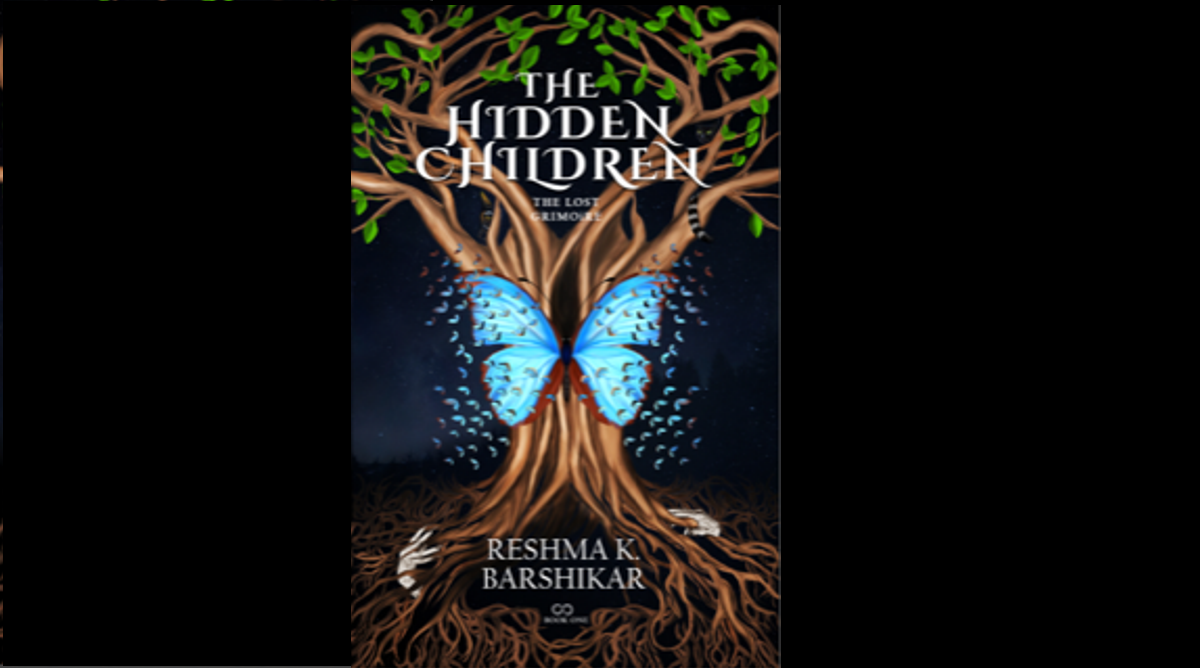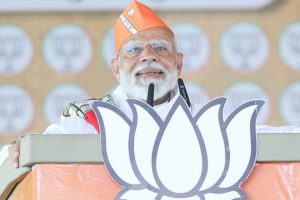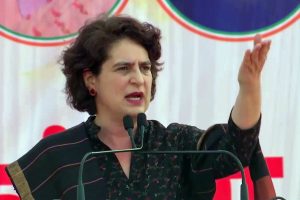Author Reshma Krishnan was an Investment banker when she suffered a “quarter-life crisis” and began writing to find the answer. She defines her latest book, “The Hidden Children: The Lost Grimoire” as a young adult contemporary fantasy.
In an interview with Thestatesman.com, Krishnan talks about the inspiration behind her book, why writing makes her happy and the advice she would like to give to every budding writer out there.
1. You are an investment banker. Why did you decide to become a writer and when did you find out, this is something you want to do?
Advertisement
So the strangest thing is I never wanted to be a writer growing up but I have always written. I kept a journal religiously and even wrote enough poems to send a portfolio out to Hachette in my early twenties. I am not sure what I thought would happen. But writing is not a profession I sought; I wanted to be an Investment Banker and that’s what I worked towards. After about ten years in finance, I began to ask myself if this was something I wanted to do for the rest of my life, I suppose you could call it a quarter-life crisis, and I heard a resounding no. That was startling and I suppose I began to write as a reaction to that answer, a way to find a way around it.
If I wasn’t a banker, what was I? When you spend your life working towards something and then achieving it, it’s disconcerting, you suddenly not want to do it anymore. I sent something I wrote to a well-known writer and she seemed happy to introduce me to an editor at a travel magazine, who loved it. I began writing small features and found it came easy. I have always written- I began my career writing at The Hindu Business Line, but this felt different because I soon found my style.
On vacation in Tuscany I wrote a few chapters after being inspired by the place and again, people, my mother to be honest, liked it and said she wanted to know what happened next. So I took a few writing online writing classes to understand the machinations – I was still working at the time.
Pretty soon, work began to take a backseat and I knew I had to quit, so I did that and travelled for a couple of years while I wrote the book after which I decided to take the leap and become a full-time writer. I still find it hard to call myself a writer, it’s such a vague term, so unlike saying you’re an investment banker, or you run a business. But I do know that when I write I feel like I am doing what I am meant to be doing because it makes, and it sounds pedestrian, but it makes me happy. It’s work I enjoy doing and its work I know I can do, for the rest of my life, through sickness and in health if you will because what is work other than another sort of commitment you make.
2. Let us start with the story behind the book. How the idea came to you, the inspiration behind and so on?
I was inspired by a very specific dream which became the first bit I wrote for the book- I still have the notebook and the pencil scribbles. That one paragraph inspired the tone of the book and the language. It’s when Shui dreams she’s flying over tourmaline water. I had a series of dreams after that and they felt connected and I wrote all of them down. At the same time I began to sense the need to understand the sudden burst of narcissism that was taking hold around me and I saw all of these people trying to live extraordinary lives and I sort of connected the two and wanted to know how far someone would go to be extraordinary, because it’s not enough to be yourself anymore, everyone wants you to be a better version of yourself, more glamorous, more fun, better travelled.
And finally, I realised I was constantly reading young adult fiction that was alien to any young adults I knew. So I knew I wanted to tell a Young Adult fantasy story, a genre I loved reading. I knew it wasn’t a genre in India, there’s very little YA fantasy fiction, very little YA period but I really did want to write a story I wanted to read, that I would want my daughter to read. And then it just flowed really…I was breastfeeding and I think in a very good place creatively perhaps because of the happy hormones bouncing around, but I was writing all the time which is why I have also dedicated the book to my daughter.
3. What genre do you categorize “The Hidden Children” in?
A young adult contemporary fantasy. Someone called it the first Indian high fantasy novel in a review and I cannot be happier because that’s the ultimate compliment.
4. “The Hidden Children” is Part 1 in the larger series. How many books do you plan to write?
I have currently planned a trilogy. Shui is still sixteen and coming of age. She has a long journey ahead of her, both magical and personal and I want to explore that. I also want to delve into the physics of magic because that’s something I have always obsessed about, so this gives me a great platform to build worlds and my own mythology.
5. The book deals with the teen pressures and the desire to be extraordinary. Does your book also touch on the self-esteem issues and the desire to be perfect?
Absolutely, that’s what inspired me. There’s a point in the book when Anya’s mother says, ‘I would rather be an extraordinary borrower, like your father, than a mediocre Witan. The only thing worse than being ordinary, Anya, my love,’ she would say while petting their cat, Old Deuteronomy, neither old nor Jewish, ‘is to be mediocre; to live in the grey periphery of life, looking in, wondering what could have been if you had just stretched yourself to find greatness.’
I think today, especially because of Instagram, teenagers want to portray extraordinary lives and do anything to do that. They stretch themselves, and their resources, to buy that new bag, to go to that new place, to belong to an ‘it’ crowd. I wanted to explore that on a more binary scale if you will where greatness is pretty much becoming invincible, acquiring the power to do the impossible. And also exploring finding out that you are just ‘ok’ at something. AWhat happens then? Who are you? And I haven’t answered the question yet either, there’s a long way for Shui to go before she figures out what kind of person she is and what she wants to be. All my characters address peer pressure in different ways be it Jai or Nallini, or Malvika and I cannot wait to see who they all turn out to be.
6. How do you define Young Adult Fiction and when you say that there is a lack of that in India, what do you mean?
Young adult fiction comprises about young adults- kids between 12 and 19 and explores the world from their point of you but it doesn’t mean that it’s only meant to be read by that age group. So many adults still read Harry Potter, especially the later books in the series, and The Hunger Games came out when I was in my thirties and was read by everyone I know. An equal number of adults and teenagers are reading The Hidden Children. The reason YA fiction is so compelling to all age groups is that it is the defining age of a person, the most formative, when, as I read somewhere, people are so passionate that poetry can literally save lives. It is when they are most receptive to ideas and of course when they often first find love and explore the conditionality of relationships.
To answer the second question- I read a lot of YA even now and fantasy is a genre that comes to me very naturally. It’s what I read irrespective of whether it’s GRRM or Rachel Hartman. But not being represented has always rankled me. They were always blonde, blue-eyed and had white names. They were always in London and Oxford and New York. There was no Indian Nancy Drew, no Indian Alice, nothing at all for me, and because of that my world view was primarily white because if you are a young adult who reads a lot, then that’s all you know. And you begin to question your worth in the scheme of the world – and you begin to want to be them and not want to be you. You want yard sales and Christmas and treacle, not Hilsa or besan ki ladoo. And I also teach workshops, creative writing workshops, and my kids create protagonists with names like Becca and Andrew who live in places like Chicago and Cambridge. Why are they never creating Indian characters in Indian towns? They live in Mumbai but Mumbai never seems to figure. When I ask them that, they tell me it is because Mumbai isn’t cool. No one writes about Mumbai. That really got me thinking.
What’s wrong with our cities and our world? Nothing, we just need to create stories they want, and not the ones we want them to hear. They want their own witches and vampires and music and language; they want their own mythology and it has to be theirs, not the generation before them, not gods they have grown up with. They want good looking covers, and contemporary protagonists they can see themselves in.
I also want everyone outside India to see how cool our Young Adults are, how mature they are and how smart and adventurous. No, they don’t just study all the time, they go out and save the world as well. But we don’t have that. If you look at the reviews, you’ll see everyone is talking about how The Hidden Children is the first Indian YA novel. When it came out it was the only Indian YA written by an Indian Author, not the Amazon top 50 Children’s bestseller list. Everything else was Geronimo Stilton or Percy Jackson, and of course Harry Potter.
7. What advice would you give to young writers out there who are trying to make it big in the writing industry?
I am still an interloper. But to any budding writer, I would say, just write. Read a lot, write a lot and hone your craft. That means doing writing exercises, working on your vocabulary and keeping a notebook and pen handy at all times. The great thing about writing is that it requires no infrastructure, just a pen and a paper and your imagination. The other thing you can do is become part of a community. Go to a regular workshop where someone can critique your work.
8. The number of readers today are decreasing. In a situation like this, what do you think is the future of writing and reading?
It’s a worrying thought. My summers were spent reading six hours a day in the bowels of a guava tree. I am fairly certain that’s not what teenagers do now. I think the nature of the content is changing and so content creators need to change along with it. There will always be writing because we need to communicate without audio sometimes- it’s just more efficient, and where there’s writing you need to read. I think we need to make reading more fun and integrate into a teenagers way of life.
I think schools have to bring reading for fun back into the curriculum and I know schools are encouraging it more than they did when I was a child. I remember having a period called non-detail where I explored so many books. All you did was read stories, but the stories have to change.
Stop doing Shakespeare and bring in Philip Pullmans Northern Lights perhaps, I don’t know. I do think too much streaming is bad because it is a passive way to pass time and then the mind just gets lazy but the content is so compelling. And every good book is eventually being made into a tv series! I know people who haven’t bothered picking up Game Of Thrones because they don’t need to. So books will have to compete with visual content and that means we have to work harder to tell more compelling stories.
Advertisement











